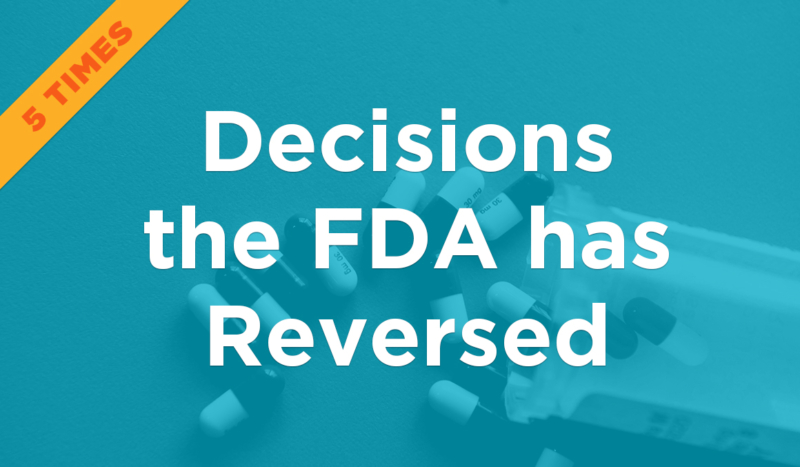
The two contradictory rulings regarding the U.S. Food and Drug Administration’s (FDA) approval of the abortion-inducing drug mifepristone will likely send the controversial case all the way to the Supreme Court.
The original case, brought on behalf of clients by the Alliance Defending Freedom called into question the FDA’s unprecedented and rushed approval of the medication, then known as RU-486, over 20 years ago.
If the FDA does eventually rescind its approval of mifepristone, it would not be the first time it reversed a decision it made on approving a drug. Here are five times when the FDA admitted they were wrong.
Aduhelm
In July 2021, the FDA significantly limited the scope of its authorization for Aduhelm, a drug used to treat symptoms of Alzheimer’s disease.
This reverse course came just a month after they approved the costly medication, which runs a bill of around $56,000 annually for Alzheimer’s patients. The drug’s accelerated approval came despite significant concerns that it was actually able to slow the progression of the deadly disease.
According to the new restrictions, Aduhelm is now authorized for only roughly a third of the Americans with Alzheimer’s – namely, those in the early stages of the disease and with less severe symptoms.
Unsurprisingly, the drug was specifically designed for patients with early-stage Alzheimer’s, but in spite of the medical evidence the FDA still initially made it available for all patients.
Belviq
In February 2020, the FDA requested the withdrawal of Belviq (lorcaserin), a weight-loss drug they first approved in 2012, after it was determined that it increased the risk of cancer. The drug was subsequently taken off the market.
The FDA stated: “We are taking this action because we believe that the risks of lorcaserin outweigh its benefits based on our completed review of results from a randomized clinical trial assessing safety.”
Cylert
Cylert (pemoline) was an oral drug primarily used to treat ADHD in large numbers of children. In 1999, 24 years after giving the drug the green light, the FDA added a warning label to its boxes informing parents that it had the potential to cause significant liver damage.
The FDA, however, did not withdraw the drug’s approval until 2005, after it had been on the American market for 30 years. Even then, they refused to recall the drug. Two doctors responded to the FDA’s absence of a recall saying:
It is reckless and insensitive to the health and lives of children and adults using this drug for the FDA and the involved drug companies to fail to institute an immediate recall of these dangerous products.
Darvon & Darvocet
In November 2010, the FDA banned the opioid painkiller propoxyphene, a full five years after the United Kingdom banned the drug. This notorious medication had been marketed under several names, including Darvon and Darvocet.
Propoxyphene, initially approved in 1955, was known for often causing extreme toxicity to a patient’s heart. Between 1981 and 1999, at least 2,000 deaths were linked to the drug.
At the time of its ban, about 10 million Americans were taking propoxyphene.
Makena
On April 11, 2023, the FDA announced that they were withdrawing their approval of Makena (hydroxyprogesterone caproate), another drug approved under an “accelerated” authorization. Makena was taken by pregnant women to prevent preterm birth, but it proved ineffective and was pulled from the market after being authorized for 11 years.
In a press release, FDA Commissioner Robert Califf offered this to say about his administration’s backtracking on the drug:
It is tragic that the scientific research and medical communities have not yet found a treatment shown to be effective in preventing preterm birth and improving neonatal outcomes — particularly in light of the fact that this serious condition has a disparate impact on communities of color, especially Black women. Fundamentally, however, the touchstone of FDA drug approval is a favorable benefit-risk assessment; without that favorable assessment, the drug should not have the status of being FDA-approved.

